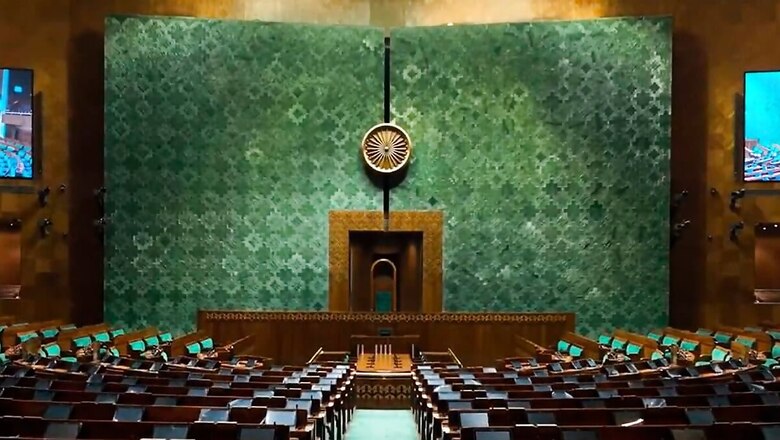
views
The Parliamentary Panel for Law and Justice has summoned the Law Commission to appear before it on July 3 on the issue of the Uniform Civil Code (UCC).
Besides the Law Commission, the panel, headed by BJP Rajya Sabha MP Sushil Modi, will also hear the views of the Department of Legal Affairs and Legislative Department.
Prime Minister Narendra Modi earlier this week made a strong push for a UCC, asking how can the country function with dual laws that govern personal matters, and accused the Opposition of using the UCC issue to “mislead and provoke” the Muslim community.
In the simplest terms, the UCC means one law which would be applicable to all religious communities in matters such as marriage, divorce, inheritance, adoption, maintenance, etc.
Aam Aadmi Party (AAP), Shiv Sena, AIADMK and Telugu Desam Party (TDP) have extended support for the UCC so far. The Indian Union Muslim League (IUML) and the All India Muslim Personal Law Board (AIMPLB) have opposed the UCC.
Earlier today, Nationalist Congress Party chief Sharad Pawar said his party will decide its stand on the Uniform Civil Code (UCC) after the government clarifies certain things, and also made a pitch for reservation for women in Parliament and state legislatures.
National Conference president Farooq Abdullah said the Centre should not push through with the Uniform Civil Code and rethink the consequences of implementing it. “They should rethink about it. This is a diverse nation, people of different races and religions live here and Muslims have their own shariah law,” he said.
AIMIM leader Asaduddin Owaisi asked whether the country’s pluralism would be “snatched away” in the name of UCC.
Earlier, Law Commission Chairman Justice Ritu Raj Awasthi said the panel has received 8.5 lakh responses within just two weeks of initiating a public consultation process on the matter. The Law Commission had on June 14 invited views from all stakeholders, including people and recognised religious organisations, on the politically sensitive issue.
“The responses we have received till yesterday are approximately 8.5 lakh,” Awasthi told PTI.
Implementation of a UCC has been part of BJP election manifestos. Uttarakhand is already in the process of framing its common code. The BJP had promised a uniform civil code in Karnataka ahead of the recent assembly elections.
Earlier, the 21st Law Commission, the term of which ended in August 2018, had examined the issue and solicited the views of all stakeholders on two occasions. Subsequently, a consultation paper on “Reforms of Family Law” was issued in 2018.
The 22nd Law Commission, which recently got a three-year extension, has now restarted the process and has sought views from stakeholders till July 13.
If need be, the commission might call upon any individual or organisation for a personal hearing or discussion, the present law panel had said in a June 14 public notice.
The consultation paper of the 21st Law Commission headed by Justice B S Chauhan (retd) had said that while the diversity of Indian culture can and should be celebrated, specific groups or weaker sections of the society must not be “dis-privileged” in the process.
The commission dealt with laws that are discriminatory rather than providing a UCC “which is neither necessary nor desirable at this stage”, the paper issued on August 31, 2018, had said. The consultation paper said most countries are now moving towards recognition of difference, and the mere existence of difference does not imply discrimination but is indicative of a robust democracy.
Article 44 of the Constitution, part of the Directive Principle of State Policy, provides that the State shall endeavour to secure for the citizens a uniform civil code throughout the territory of India.
(With PTI inputs)




















Comments
0 comment